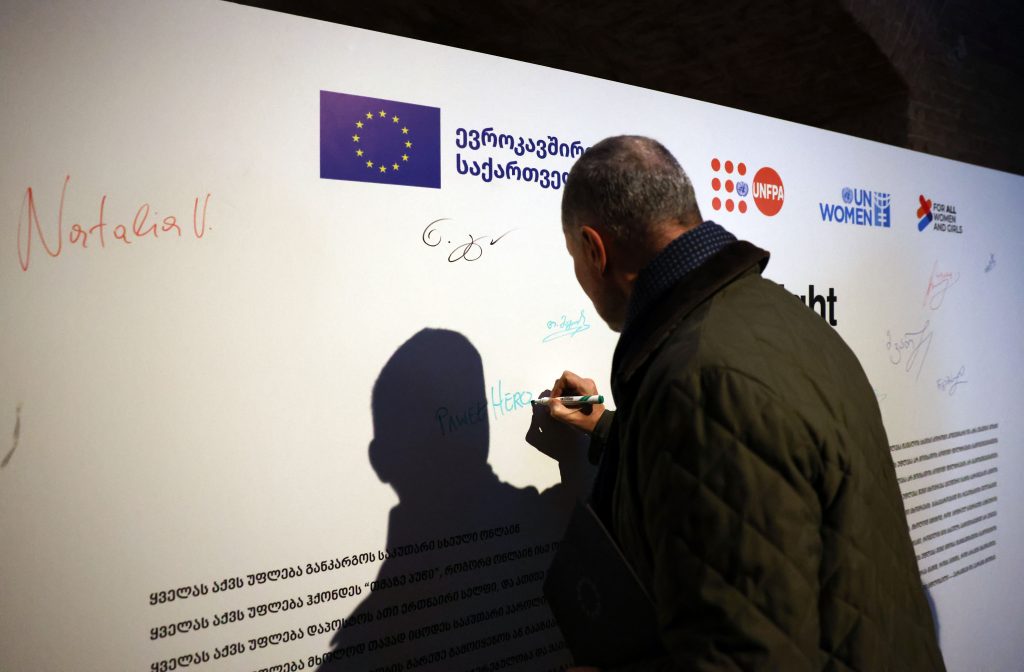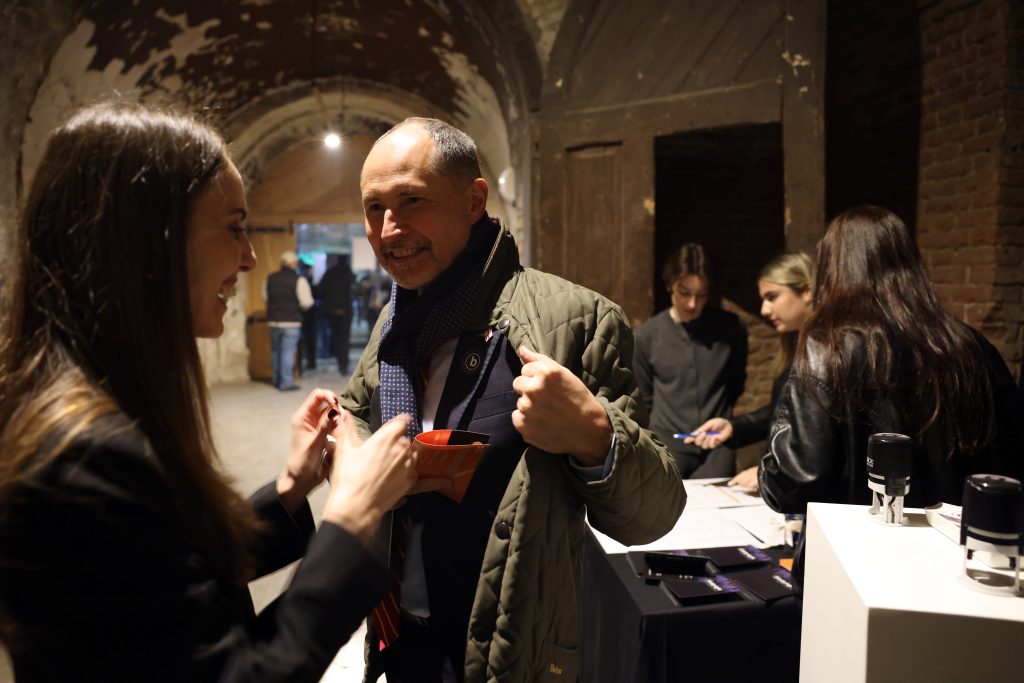
With EU support, UNFPA launches ‘Bodyright’ Campaign ‘Own Your Body Online’
The United Nations Population Fund (UNFPA) wants every woman, girl, and young person to feel safe and protected online through its global ‘Bodyright’ campaign.
With the European Union supported “Gender Equality for Georgia” programme, the campaign kicked off on 26 November, as part of the 16 Days of Activism against Gender-Based Violence demanding to take digital violence seriously.
Through this campaign, UNFPA seeks to raise public awareness, spark open conversations on digital safety, and mobilize collective action to end technology-facilitated gender-based violence (TF GBV) in Georgia.
At the launch event at Haraki Theatre, creative performance “Virtual is Real”, based on the documentary materials, offered a series of monologues on TF GBV – one of the increasing forms of violence against women, girls and youth at large.
In their address following the launch, EU Ambassador to Georgia Pawel Herczynski, UN Resident Coordinator in Georgia Didier Trebucq, and Head of UNFPA in Georgia Mariam Bandzeladze spoke of the importance of unity against TF GBV.
“Over the past years, the EU has supported over 20 000 survivors of gender-based violence and invested nearly 8 million euros to strengthen prevention, protection, and economic empowerment of women across Georgia. As violence increasingly moves online, every woman and girl deserves the same protection online as offline. That is why, the EU proudly supports the Bodyright campaign, committed to making digital spaces safe and dignified.”- EU Ambassador Pawel Herczynski.


Didier Trebucq: Digital violence is real, and women and girls have the right to feel safe in every space — online and offline. Every day, more people, services, and information move online — but as our digital lives expand, so do the risks. The same platforms that connect us can also be misused to harass, intimidate, and harm. Digital violence is not virtual — its consequences are real, and they affect lives, wellbeing, and opportunity. Let us work together to ensure the digital world becomes a space of opportunity — not fear.
Mariam Bandzeladze: “As UNFPA, it is in our DNA and strategic mission to support women and girls across the lifecourse. This is what the Bodyright campaign stands for as a movement demanding to take digital violence seriously. Our bodies, images and information are ours — online and offline — and it needs to be protected. Join our campaign to ensure that every woman, every girl, and every young person can experience a safer digital world.”
As the world becomes increasingly digitized, violence has also migrated online, taking new and pervasive forms. Digital platforms and technologies now enable perpetrators to reach women and girls directly – in the privacy of their phones, homes, and workplaces.
TF GBV has become a widespread global phenomenon, encompassing cyberstalking, hate speech, doxxing, and the non-consensual use of intimate images and videos, including deepfakes. Online spaces, once imagined as places of connection and opportunity, are now also arenas where violence and abuse thrive.
Just as everyone deserves to feel safe walking down a street, we should also feel safe navigating the virtual world. Yet today, a song or a logo often enjoys stronger digital protection copyright than the image of a person’s body. Social media platforms and digital spaces have become arenas where girls and young people, in particular, face discrimination, image-based abuse, and violations of their autonomy. When a photo is taken, manipulated, and shared without consent, it is not only a breach of privacy but also an assault on dignity and bodily autonomy. It’s an old story of gender inequality manifested in a new form. The impact can be devastating – instilling fear, anxiety, and helplessness, eroding self-esteem, and leaving long-term emotional scars.
Women, girls, young people, and other marginalized communities are the most vulnerable to having their images abused online and being subjected to insults and degrading sexual acts without their consent. Globally, 85% of women reported witnessing digital violence, and nearly 40% have experienced it personally*1. Among adolescent girls who have access to digital technologies, 64% of them are frequent users and are particularly vulnerable to TF GBV.2
This growing wave of hatred and violence can be traumatising for those targeted. Nevertheless, this phenomenon is often ignored by law, society, IT companies who continue to value and protect copyright more than they do human beings and our online rights.
The bodyright campaign is being implemented with the frames of Gender Equality for Georgia (GE4Georgia) programme funded by the EU and jointly implemented by UNFPA and UN Women.
About the European Union
For more than 30 years, the European Union has built a close partnership with Georgia, supporting its development through knowledge and experience sharing, expertise, innovation and financial support. The relationship between the EU and the citizens of Georgia is based on shared values of peace, freedom, democracy, human rights and inclusive economic growth. More about the EU’s support in Georgia https://eu4georgia.eu/the-european-union-in-georgia/